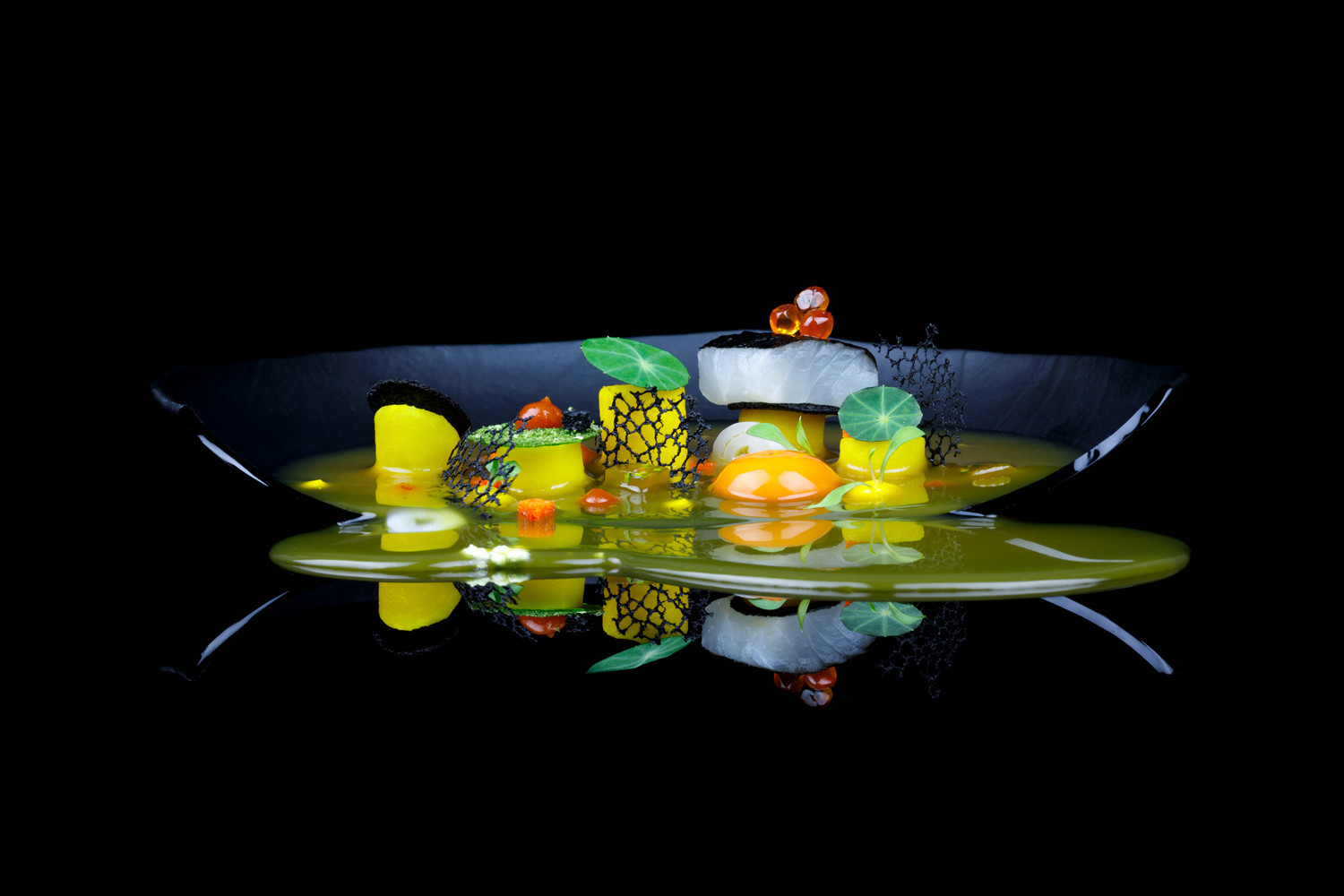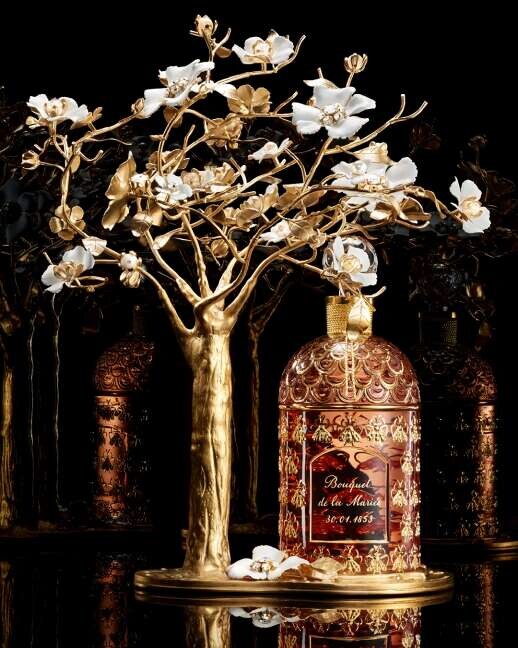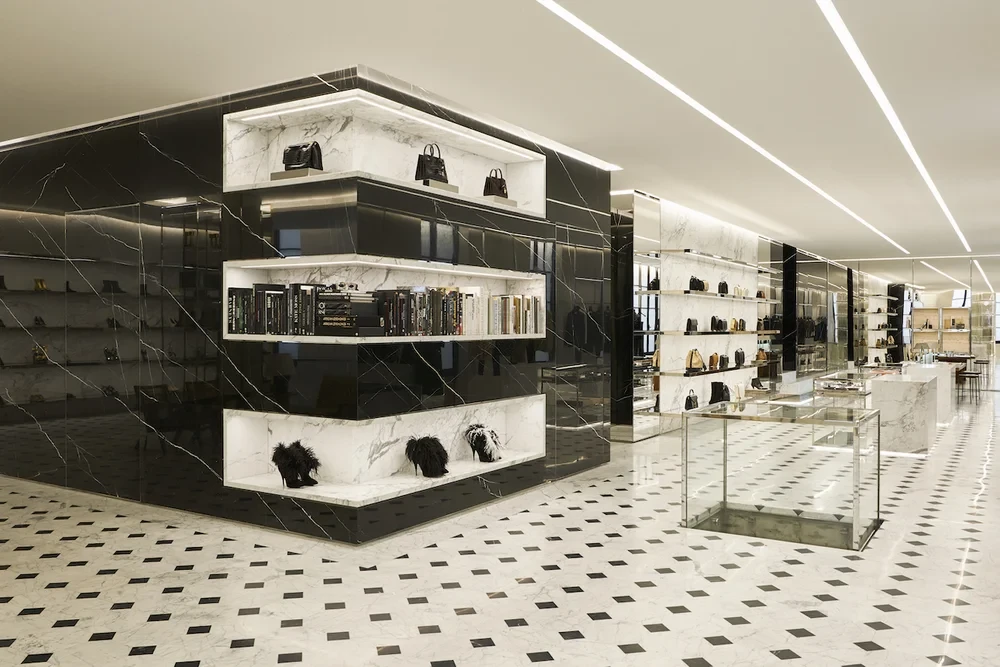Elected on several occasions “chef of the year” by the most prestigious gastronomy awards - top 10 of Best Chefs of The Best Chef in the World Awards 2017 - holder of the prestigious Best Chef Awards 2018 ‘Fol-LOVERS’… It would be almost impossible to introduce Grégoire Berger through the endless list of his numberless awards. Why not try to unveil and understand the artist’s talent through his own words instead? Vendom.jobs had the privilege to meet the chef of the spectacular Ossiano restaurant, in the mythical Atlantis The Palm in Dubai. Passion, enthusiasm and forward vision... there are so many ways to depict his skills! Grégoire Berger opened for us the doors of his inextinguishable inspiration, his perpetual quest t hat serves one purpose only: touch souls. He offers an ode to the senses, to all senses, as well as an internationally recognized and unrivalled experience.
.jpg)
Vendom.jobs - What triggered your passion for cooking?
Grégoire Berger – My experience is somewhat unusual. Even if my grandmother was a wonderful cook and the food at home was always delicious, in my early years I did not consider cooking as an essential part of my life. Around the age of 16, like many young people, I was trying to find my way, something I would really be interested in. One day, I had the opportunity to start as an apprentice at La Closerie de Kerdrain [a gourmet restaurant in Auray created by Martine and Fernand Corfmat]. There, I was lucky enough to meet an extraordinary chef who made me understand that I had to make a choice and work hard because this profession needs a genuine commitment. So passion appeared gradually, also thanks to the contact with food. Brittany is a land of plenty; it offers splendid products. As I started to integrate fish in my dishes, I quickly realized that cooking is also an act of creation.
.jpg) © Dovydas Vilimas
© Dovydas Vilimas
V.J. – Which one is your “lucky” dish, a favourite you always come back to?
G. B. – I think it is the rhubarb pie. When we were kids, we used to spend our holidays in Normandy at my grandmother’s. There was rhubarb in her garden. When we came back from the beach, my grandmother used to bake cakes for us. Her rhubarb pie is the cake that impressed me the most. Its sourness most of all, but also the rhubarb with its beautiful green color. It is always a very comforting memory for me. This is also how sour tastes began to fascinate me.
V.J. – In today's cuisine, sustainability seems to be a continuously recurrent issue. You are very concerned by this question. How do you manage supplies in Dubai? Which producers do you preferably turn to?
G. B. - The case of Dubai is a little peculiar. One cannot honestly claim to be completely locally sustainable. We work in collaboration with suppliers who select products for us, like Classic Fine Foods. We provide them with a guideline of what we are looking for and they supply us. If, for example, we need truffle, they have the means to find it for us. All the products we use come, of course, from sustainable sources and fishing. We are extremely vigilant about this. For example, we work with a Lorient-based company, Qwehli, that produces frozen food on ships in accordance with a very appropriate process which preserves textures [high pressure treatment]. The products we receive in the end are extraordinary and formidable to work. This way of doing things also cuts waste, another aspect particularly important to us. Our restaurant is also engaged in an innovative no-waste programme initiated by the Prime Minister, that allows us to give a part of our unsold goods to associations.
.jpg) © Aline Gérard
© Aline Gérard
.jpg)
© Aline Gérard
V.J. – When listening to you or admiring your work, we feel that you have a global artistic vision of your discipline, which is very surprising and fascinating. Where do you draw your inspiration from? What motivates your compositions?
G. B. – I would say that everything is primarily related to my feelings. My work is pretty much linked to intuition and feeling. I don't always know where I'm going – I remain open to all possibilities – but I perfectly know where I don't want to go. When you discover a dish, the first note you feel is obviously the taste. However, a dish also gives a visual impression. Actually, the first sense that is awakened is sight. In my view, sight is as much important as taste when you apprehend a culinary creation. The eye needs as much satisfaction as the palate… When you think about it, why not try and satisfy the ear as well… You can imagine anything!
.jpg) © Grégoire Berger
© Grégoire Berger
.jpg)
© Grégoire Berger
Moreover, I have the feeling that in the restaurant industry everything is always and only about the chef. Everything is supposed to be revolving around him. At the Ossiano, we do not work that way. On the contrary, we make a point in putting our egos aside and concentrating on our role; it is essential for an effective team work. For example, we collaborate very closely with our General Manager, Badr Benryane. When we present a menu in the form of a poem [composed by Grégoire Berger himself], we do not merely try to present our cuisine, but we attempt to kindle an emotion. As soon as a customer sits down at a table, our main wish is to invite him or her to share an unusual and extraordinary experience and not just a culinary event. For a chef, this choice can be quite complex to achieve, as it makes him leave his comfort zone and his prestige as a chef. What we really try to do is take the customer beyond the traditional experience. If, at the end of the meal, the customer is not only charmed by our cuisine but by the whole experience that we offered, and describes the service, the environment, the atmosphere as something unique and fantastic, it means that we succeeded! So, my answer to the question where does my inspiration come from… I would say that it finds its source almost anywhere, in the daily routine, in nature, in all that I can sense and feel. It comes to me spontaneously – I don't really need to look for it. It is really a question of feeling, as I said. I strongly believe in spontaneity and in the power of the moment in the act of creation. Sometimes, when you focus too much on a visual, for example, you drift away from your initial idea.
.jpg) © Dovydas Vilimas
© Dovydas Vilimas
V.J. – How do you consider your work in an internationally oriented environment like Dubai?
G. B. – It is true that in this city, you come in daily contact with almost 70 different nationalities… We meet people who travel everywhere in the world. Naturally, because of our classification, we deal with very demanding customers and we must be aware that English, Japanese or French people do not have the same expectations. It may seem very difficult to please everyone. At the Ossiano, we precisely wanted to distance ourselves from the unremarkable international cuisine, so common in developed countries. As a Breton, my roots are very close to sea products. Besides, as I mostly did my own training, I do not put limits on myself. This characteristic is typical of modern Spanish chefs. They do not feel ground to a halt by a strong gastronomical tradition as we do in France. This is exactly what I seek. I do not restrict myself with French historical codes. I really try to let the emotion prevail, and that is where my motivation and objective lie. The emotion needs to explode, not necessarily the way I would have envisioned it, but also according to the sensitivity of the person standing in front of me. Concerning our menu developed around a poem, the guideline is not only the poem: a whole story lies behind it, just like there is a story behind the people who share it. Each dish has its own music and soul. When we change a dish, then the whole poem has to be changed as well. This balance may seem difficult to reach, like a kind of challenge, but we really wanted to lead our guests into another dimension and surprise them. Because of this vision, we would never present a dish in a traditional way: sole meunière, Charentes butter, etc. When presenting a dish, we express its dialectical nature. In France, we usually serve local products according to the season. Dubai’s geographical situation naturally does not allow us to limit ourselves to one-season products, like in France… Here, it is possible to evolve in line with various areas of the world, keeping in mind only one goal: the product’s outstandingness.
.jpg) © Grégoire Berger
© Grégoire Berger
As for creation, our attempt is to make true works of art in terms of visual aspect, taste but also history. This concept is particularly outstanding in one of the dishes that we currently offer, named “On the Path of Nostalgia”. To awaken this nostalgia, at first I was looking for a fragrance that would evoke this emotion, like a perfume can often be very suggestive. However, it is very unlikely to find a universally evocative perfume for everyone! So, this dish was invented as a high-end croque-monsieur, served with truffle and placed on a clock that goes backwards. As a chef, this dish allows me to dialogue with the guests. I present my own personal nostalgia – the croque-monsieur – and with the clock, I invite the guests to go back in time and find their memories there, the origin of their own nostalgia. In other words, we associate several stories which interact and answer each other: mine, the guests’, the place’s, etc. All these data engage the guests’ emotion.
.jpg) © Atlantis The Palm
© Atlantis The Palm
V.J. – Can you name a product you like to work with? An ingredient that particularly stirs your imagination? A perfect match, a specific association you cherish?
G. B. – Black sesame is an ingredient that I always find very interesting. Citrus fruits also, enormously. I am also very attracted by hibiscus and buckwheat. But then, I never insert twice the same dish in my menus. I have been working at the Ossiano for four years and I never repeat my recipes. Certainly, one or two dishes are still there since the opening: as they are signature dishes, there is a regular demand for those recipes. On the other hand, I admit that I can work again on associations that I am fond of, like foie gras-hibiscus, foie gras-berries,… But there are only a few of them. I usually don't like to go back on aspects I have already explored. I like to seek and innovate.
V.J. – Which current chef(s) do you follow?
G. B. – During my career, I naturally developed a strong interest for many chefs, for people whose work I particularly value. However, it is easy to create icons. When you exchange with people you admire, in human terms, you realize we are all on the same level. We are acclaimed as chefs, almost like stars. But we are not stars. We draw our inspiration from our passion, not necessarily from our peers. Of course, it is always gratifying to be considered a source of inspiration, especially for people who work with us every day. And it is a two-way feeling. I would love to be an excellent chef, to convey my passion to others, without any condescension. It is a real privilege when the value of your work is recognized and held up as an example! But I cannot honestly say that I always admire one chef or another as if they were idols. With time, I perceive this interest on a more human level, no-one is a super(wo)man. This kind of unconditional love or blind admiration, does not exist. It is not a true feeling for me. On the other hand, the emotion of exchanging and sharing on a human level is. Because of my function, I do not take care of the mise en place – I certainly create, I do the presentation for all services, but my team takes care of the rest and carry my dishes. I want us all to be happy with what we do, everyone of us where they belong at the same time. Teamwork is an osmosis which affects what we serve. In my view, human relations are similar. You cannot consider yourself a better person than your colleague because of your position. We all have our importance and reason for being; it is an invaluable balance.
.jpg) © Dovydas Vilimas
© Dovydas Vilimas
V.J – At the beginning of this new year, do you perceive any future trends?
G. B. – Sustainability, as I have already mentioned. This issue will obviously stay in the long term. However, in my view, it is very difficult to claim that you are completely sustainable or that you work every day for the common good. There are remarkable actions, like Massimo Bottura’s Food for Life, which have a true utility, but there is also a drawback in the sense that every information contributes to weave a chef's image. No one escapes the “marketing” side. On the other hand, I believe that today, no real common action aiming at working together has been taken to address contemporary issues. Our power on societal or ecological issues is unfortunately quite limited. I refer to the fishery resources because I work every day with them. These resources literally surround us at the Ossiano, thanks to the aquarium that was built all around it. Of course, it is relatively artificial, but the proximity brings a lot of questions. Will all these marvellous creatures dwelling around us – that we use in our work for some – still exist in a few decades? There probably is a marked tendency towards sustainability but, concretely, as chefs, how can we make a real saving impact? We have a responsibility and we know it. Obviously, we all wish to preserve these resources but on a daily basis, our positions impose obligations on us – training, event organization, promotion of our restaurant image, etc. – but I do hope that we will soon have the power to change things.
.jpg) © Aline Gérard
© Aline Gérard
What I also perceive is an increasingly larger opening. The catering sector is going global. We have an obligation to follow this movement. People travel more, chefs do as well to get trained. Regularly, we discover fantastic chefs from all backgrounds. As a French chef, I realize that we, French people, cannot boast any more about being the best in the world. In a sense, this is a real opportunity. France has very rich lands – I am naturally thinking of Brittany, a region that currently faces a real environmental catastrophe. I strongly believe that chefs must be able to act at that level. Yet, I do not have the feeling that we work to make an effort in that sense and have a real impact on policies. But the situation may still change! I know that some chefs work independently, more discreetly... and this is praiseworthy. However, if they do not publicise their action, it is bound to remain unknown to most people. If we took action together instead, at an international level, the impact would be huge. We have a central role, we work with nature and therefore we also have the duty to preserve it. Ironically, I work on a territory which was created very quickly. To become as it is today, Dubai necessarily exploited a lot of its natural resources. Consequently, the city is now forced to turn to sustainable solutions and develop them. I do believe that Dubai can come up with innovative solutions.
.jpg) © Grégoire Berger
© Grégoire Berger
Ossiano
Atlantis, The Palm,
Palm Jumeirah
Dubai - EAU
https://www.atlantisthepalm.com
(Translated by Tania Ricci)





